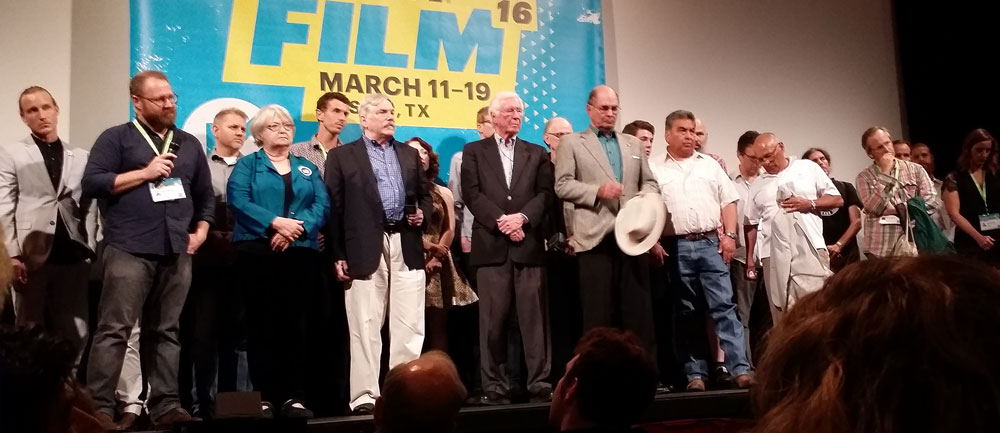
Making its debut this past March at SXSW — the annual movie and music festival held in Austin Texas — Keith Maitland’s powerful documentary takes a unique approach in telling the tale of the horrific events that occurred at the University of Texas, Austin, in August 1966.
The deserving winner of the 2016 SXSW Grand Jury Award, Tower tells the story of the clock tower shootings that occurred at the University of Texas campus on August 1, 1966.
Director Keith Maitland utilizes an intriguing approach to relate the incidents of that terrible day. Rather than relying strictly on vintage footage and talking head interviews, he cast actors to portray the real-life protagonists and transformed them into rotoscope animations. This may sound irreverent, especially for such a grim subject, but the result is a film that’s artistically brilliant and profoundly moving.
Among the players is Claire James, who was eight months pregnant on that hot summer day. She was shot along with her boyfriend, Tom Eckman, who didn’t make it. Neither did her baby, and she was forced to lay on scorching cement for over an hour knowing that the child inside her was dead. Allen Crum, a civilian working in a shop nearby, rushed to help when he saw that a boy on a bicycle had been shot, and he ended up playing an important role in helping law enforcement to stop the killer. Officer Houston McCoy, who initially left the scene in a panic, would muster the courage to return and perform the duty he was sworn to complete.
Maitland follows these characters’ stories and more, interspersing stylized animation with actual news footage that injects the necessary jolts of reality. As the film concludes, the animated images dissolve to reveal actual shots of the people we’ve been following as they appear today. It’s powerful stuff.
The filmmaker also does imaginative things with these animated segments. For example, being a pregnant, unmarried 18-year-old in 1966 was scandalous, making James quite the free spirit even though the Summer of Love was still a year away. As she relates the story of her short but happy relationship with her beloved Tom, Maitland gives the animation a groovy Peter Max look.
And as the gunman’s bullets find their marks, he drenches the screen in red when the silhouetted bodies hit the ground, video game style — which is a way of showing how callously the killer certainly must have viewed his victims. Maitland is also sensitive to the fact that his characters must look like real people, and he manages to convey the smallest details — a rueful grin, a fleeting memory that passes behind the eyes — it all comes through.
Since there were no trained counselors back then to help the survivors work through the terror of their ordeal, many of them still suffer from PTSD. James, who was unable to carry another child after the incident, moved on with her life and adopted a son that she adores. She also went to the Texas State Capitol to speak against the law that was passed last year, allowing Texas residents to openly carry firearms in public — including college campuses.
Maitland concludes the film with a depressing litany of the mass shootings that have occurred in America since that day, and it serves as a powerful condemnation of the NRA’s overwhelming influence on the government and open carry laws.
Seeing this film in the capitol added emotional heft to my viewing experience. And, after the screening, when the director brought the real-life survivors and heroes to the stage, the air was thick with emotion.
Maitland said that Tower will be airing on PBS’ Independent Lens later this year, but his wish is to see it screened theatrically in August — the 50th anniversary of the shootings. Let’s hope that he can make it happen.







